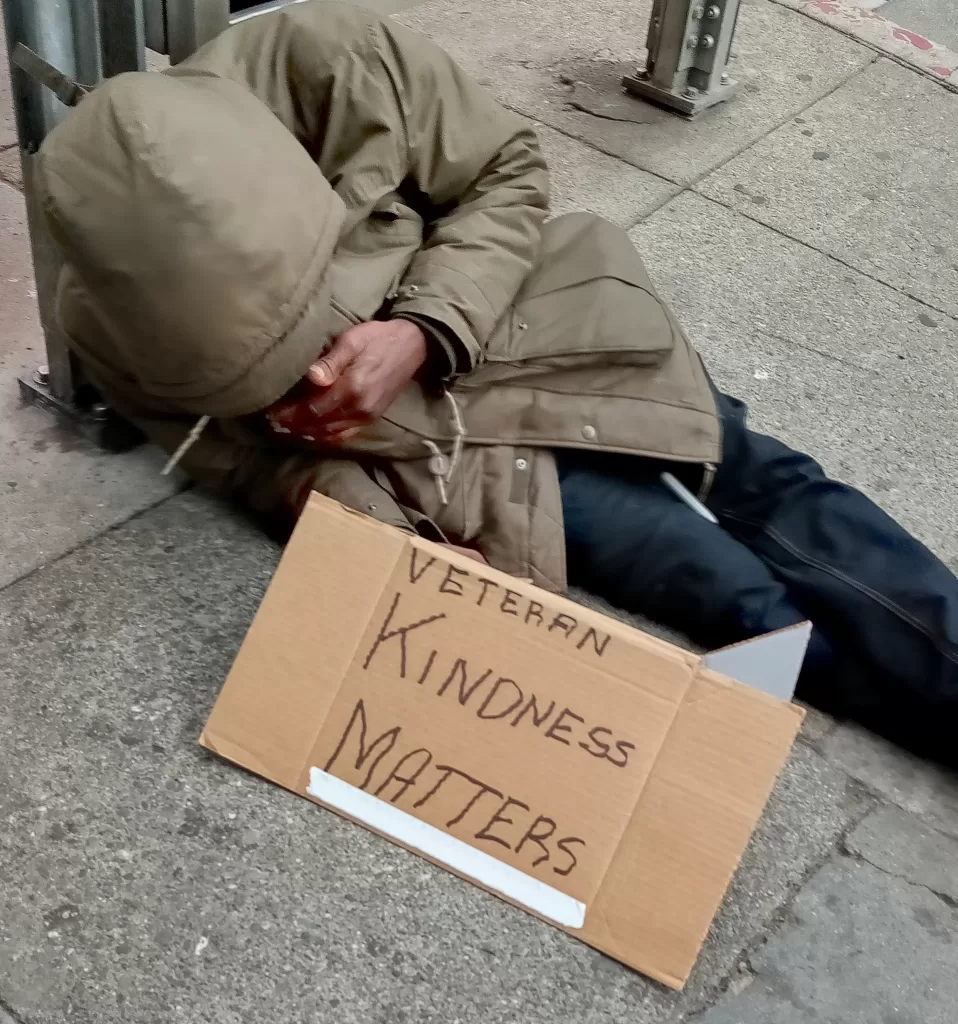A coalition of current and former San Francisco officials and civic organizations filed a friend-of-the-court brief to the U.S. Supreme Court in advance of a hearing on whether cities could penalize existing while homeless even when no shelter is available. Members of the coalition and their counsel, Lawyers’ Committee for Civil Rights of the San Francisco Bay Area, announced the filing in a press conference on Zoom.

Separately, the Western Regional Advocacy Project filed their own brief supporting the plaintiffs against the city of Grants Pass, Oregon. Over a thousand organizations, entities, and people across the country have independently submitted about 40 similar briefs as well..
The Grants Pass case, which will be heard on April 22, could determine whether a 2018 ruling in Martin v. Boise stands. The 9th U.S. Circuit Court of Appeals upheld previous rulings declaring that arresting and ticketing unhoused people for sleeping in public without making shelter available is cruel and unusual punishment.
That precedent could be overturned by a conservative majority presiding over the nation’s highest court if it decides in Grants Pass’s favor. If that happens, San Francisco and other cities could institute policies where living outside is punishable by law—even when no shelter is available.
California Gov. Gavin Newsom and San Francisco Mayor London Breed filed briefs of their own in Grants Pass. They agreed that criminalizing sleeping in public when shelter is unavailable is unconstitutional, while at the same time urging the Supreme Court to essentially allow them to criminalize unhoused people who have nowhere to go. At the press conference, Zal Shroff, then-acting legal director of the Lawyers’ Committee, said that Newsom and Breed are engaging in “political theater” by blaming the courts for their own failures to implement real solutions to street homelessness.
“Why?” Shroff said. “The reality is that our leaders have chosen to play politics instead of doing their jobs [on ensuring services and affordable housing].”
By extension, the San Francisco coalition’s amicus brief also implicated San Francisco’s failed response to unsheltered homelessness—despite the City’s purported “compassionate, services-first approach” to its street outreach programs. The City’s failure to follow its own policies is the subject of a separate lawsuit that the Coalition on Homelessness, the homeless advocacy organization that publishes Street Sheet, brought against the City.
The Lawyers’ Committee coalition’s brief cited a City internal audit stating that “the City’s street teams do not achieve their established goals” in providing an indoor place for people living outside. It also referenced a finding by the Northern District Court of California that San Francisco failed to make shelter available before arresting them—something that the City has never disputed.
Disinformation campaign
In the brief, the Lawyers’ Committee’s coalition accused the City of spreading disinformation about the Northern District’s order in 2022 barring encampment sweeps as long as there are more people than available shelter beds.
“San Francisco claims the Northern District ‘inserted itself as a policy maker’ to change the City’s policy on homelessness,” the committee’s coalition wrote.
“That is false,” it added. “What is at issue is the body of detailed evidence demonstrating significant failures to comply with the policy.”
The committee coalition continued, “The only thing cities cannot do is intentionally banish their unhoused residents than for being homeless—which California leaders agree is cruel, unusual and counterproductive.”
A racial justice issue
In an additional filing with the Supreme Court, the San Francisco-based Western Regional Advocacy Project noted that homeless sweeps are patterned after other expulsion practices in U.S. history, particularly Jim Crow segregation laws enacted after the Civil War and the establishment of “sundown towns” that effectively barred people of color.
Its brief also said that Grants Pass was a sundown town, citing a 19th-century editorial that warned Black, Latinx, and indigenous people to stay away.
At the press conference, Brandon Greene, the organization’s policy director, framed homelessness as a racial justice issue. Despite the relatively small proportion of Black and brown people citywide, they make up for a significant part of the unhoused population, according to figures from the City’s point-in-time counts.
Greene said that race figures heavily in how the City responds to homelessness, as well as criminal justice.
“If those numbers were different with Black and brown people not disproportionately represented among the unhoused population, the solutions would look very different,” he said.
In a city that spends more than $20 million policing homelessness, Greene said that sweeps fail to place people in homes—they just further displacement.
“We know when you move people from one section of the city, they end up going to another section,” he said. “That is neither a solution that is fiscally responsible, nor is it a solution that actually helps us.”
Grants Pass v. Johnson, docket no. 23-175, is scheduled for April 22.
